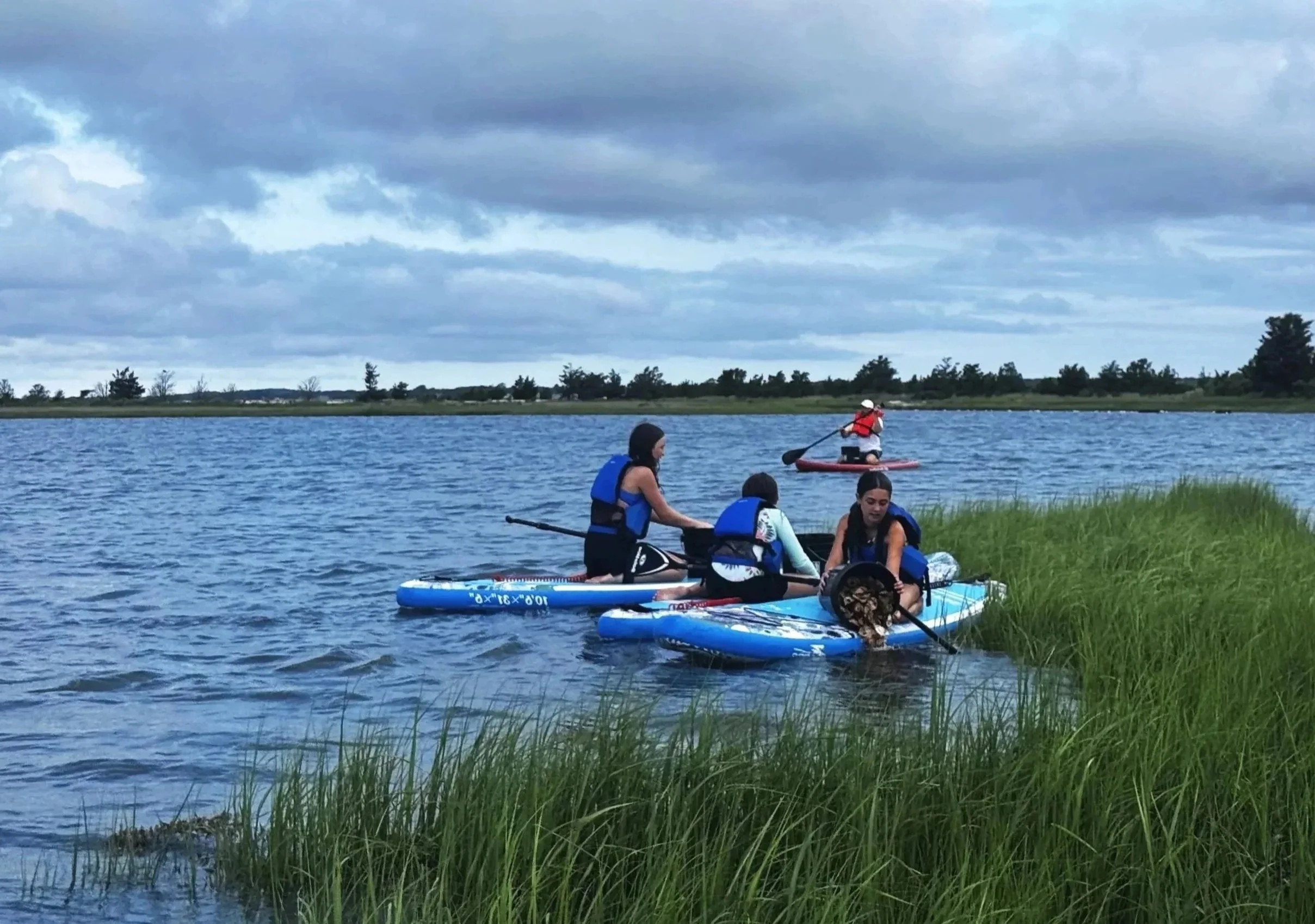
Southold
Stewardship Site
Sponsored by the
Background + Goals
Cornell Cooperative Extension Marine Program has been working since 1985 to enhance habitat and shellfish populations along the North Fork and Long Island’s Suffolk County in general. CCE Marine’s Aquaculture + Habitat programs are headquartered at the Suffolk County Marine Environmental Learning Center (SCMELC) located at Cedar Beach in Southold. This site also serves as a central location for hosting school programs, Stewardship Sessions, and other outreach activities. Initiated by the North Fork Polar Bears in 2024, we created a new Southold Stewardship Site, helping us to fully integrate Cedar Beach into our Back to the Bays Stewardship Site Network, and significantly expanding shellfish + habitat restoration in Southold Town waters. Thanks to their generous sponsorship, we have laid the groundwork to establish a new oyster reef in Cedar Beach Creek, began seeding hard-clams, and launched our Seahorse Hotel Network in Southold Town waters.
Plunging into Partnership with the North Fork Polar Bears
***EVENT CANCELLED***
Click image to read the full letter for information about merch + prize pickup
4th Annual North Fork Polar Bear Plunge!
This annual fundraiser features nearly 300 brave plungers and raises approximately $100,000 for CAST and Back to the Bays.
We are so appreciative of the @northforkpolarbears for selecting us as the featured environmental charity since 2024, and to @castnorthfork for welcoming us in as fellow beneficiaries.
Become a Back to the Bays Steward or Donate
Recent Blog Posts
Upcoming Events
Current Work Underway
-

Shell Recycling
Coastal restaurants typically go through thousands of pounds of oyster shell in one season, all of which often gets sent to a landfill. However, these shells hold incredible ecological value! When wild oysters spawn, the larvae seek the shells of other oysters onto which they will set and grow into elaborate reef structures, offering crucial habitat for a menagerie of other marine species.
Working with local restaurants, we have developed a robust Shell Recycling Program that we operate on the East End of Long Island with select restaurants. Our key shell recycling partners for this location are Little Creek Oysters, Little Ram, and Silver Sands. If you would like to volunteer with our shell collection team please contact Kate Rossi-Snook at kr474@cornell.edu
-

Oyster Reefs
Oysters are considered a “keystone species” for marine ecosystems because not only are they incredible water filterers, they also create a complex reef structure as they grow that offers critical habitat for many important species, and helps to buffer storm surge which reduces coastal erosion.
The process of setting oyster larvae on clean, empty oyster shells is called “remote setting.” It is performed in a tank with controlled conditions, and only takes a couple of days for the oyster larvae to find their permanent home. When oysters are set in this manner, it is referred to as “spat-on-shell” (SOS), and oftentimes many oysters will set on a single shell, creating a 3D structure as they grow larger. These reef oysters are not meant to be harvested, but rather to help enhance the wild oyster population. Working in tandem with our Back to the Bays Shell Recycling Program, we will be establishing an SOS Reef Restoration Site in our Back to the Bays Stewardship Sites across the East End of Long Island.
-
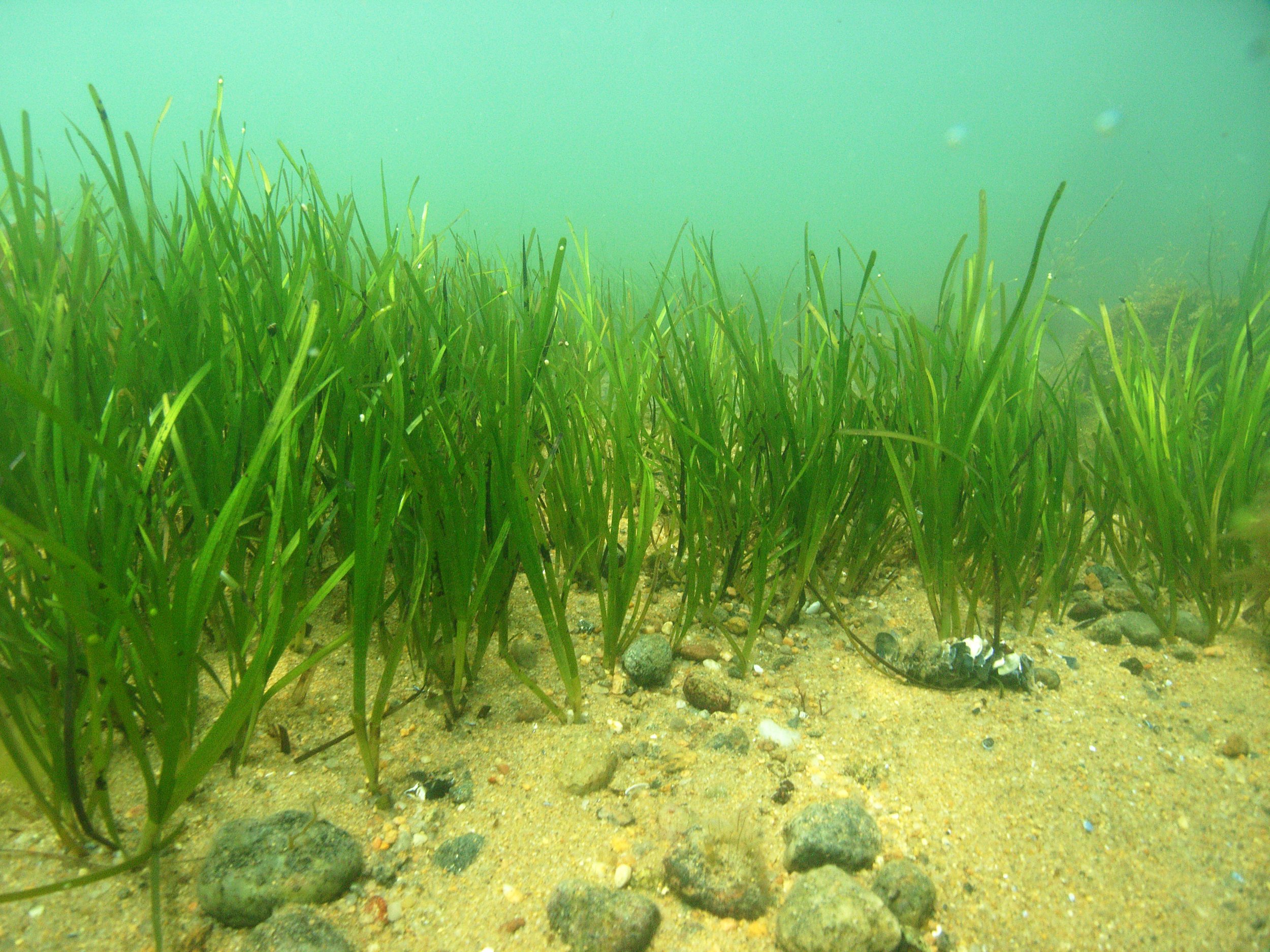
Marine + Coastal Habitats
Eelgrass is a key aspect of our restoration work at our Stewardship Sites, as meadows offer essential habitat to commercially and recreationally important finfish + shellfish species. We are also exploring the use of other species of submerged aquatic vegetation (SAV), such as widgeon grass, depending on site specifications.
Our habitat team’s work continues into the intertidal and upland zones, restoring native spartina and dune grasses as well, which are critical for a thriving coastal ecosystem.

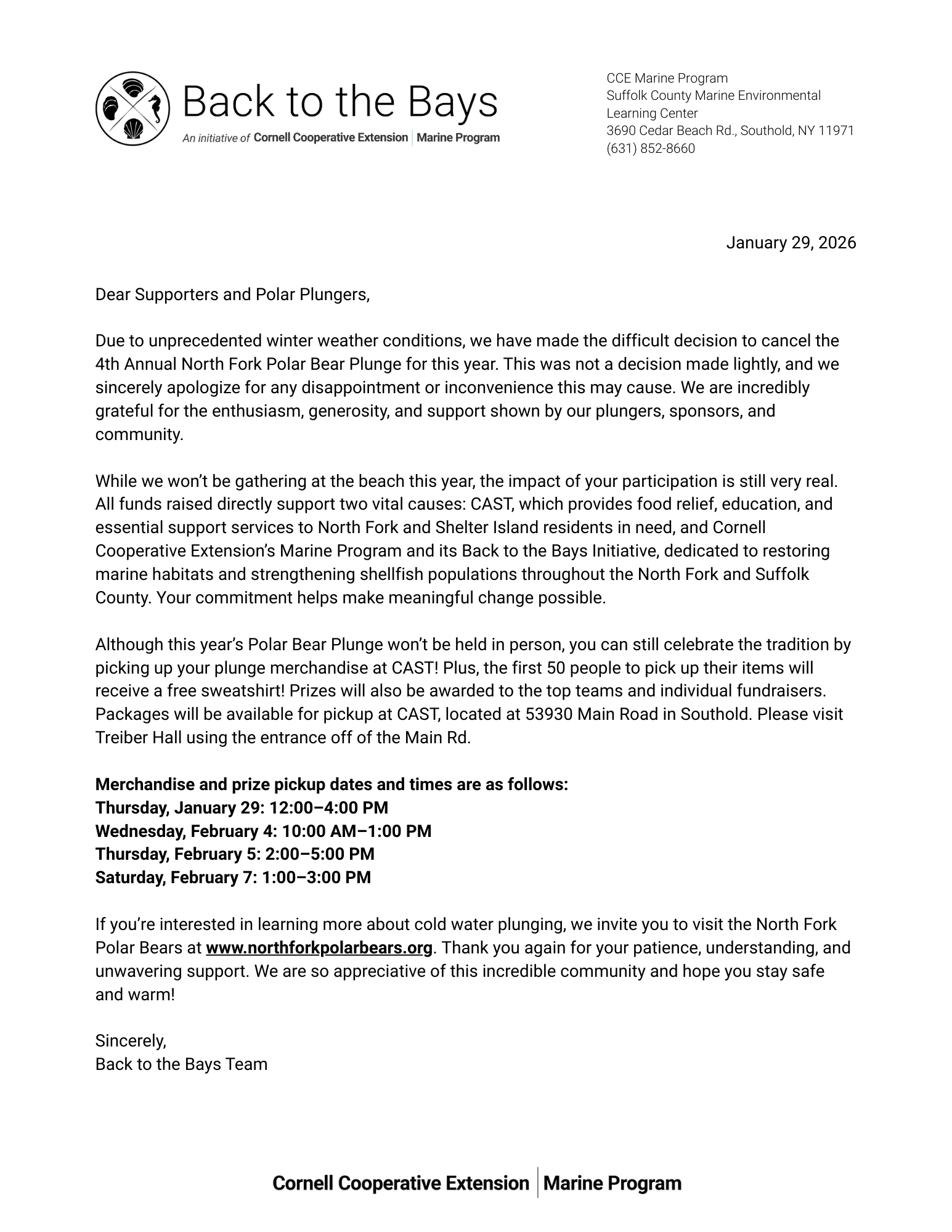
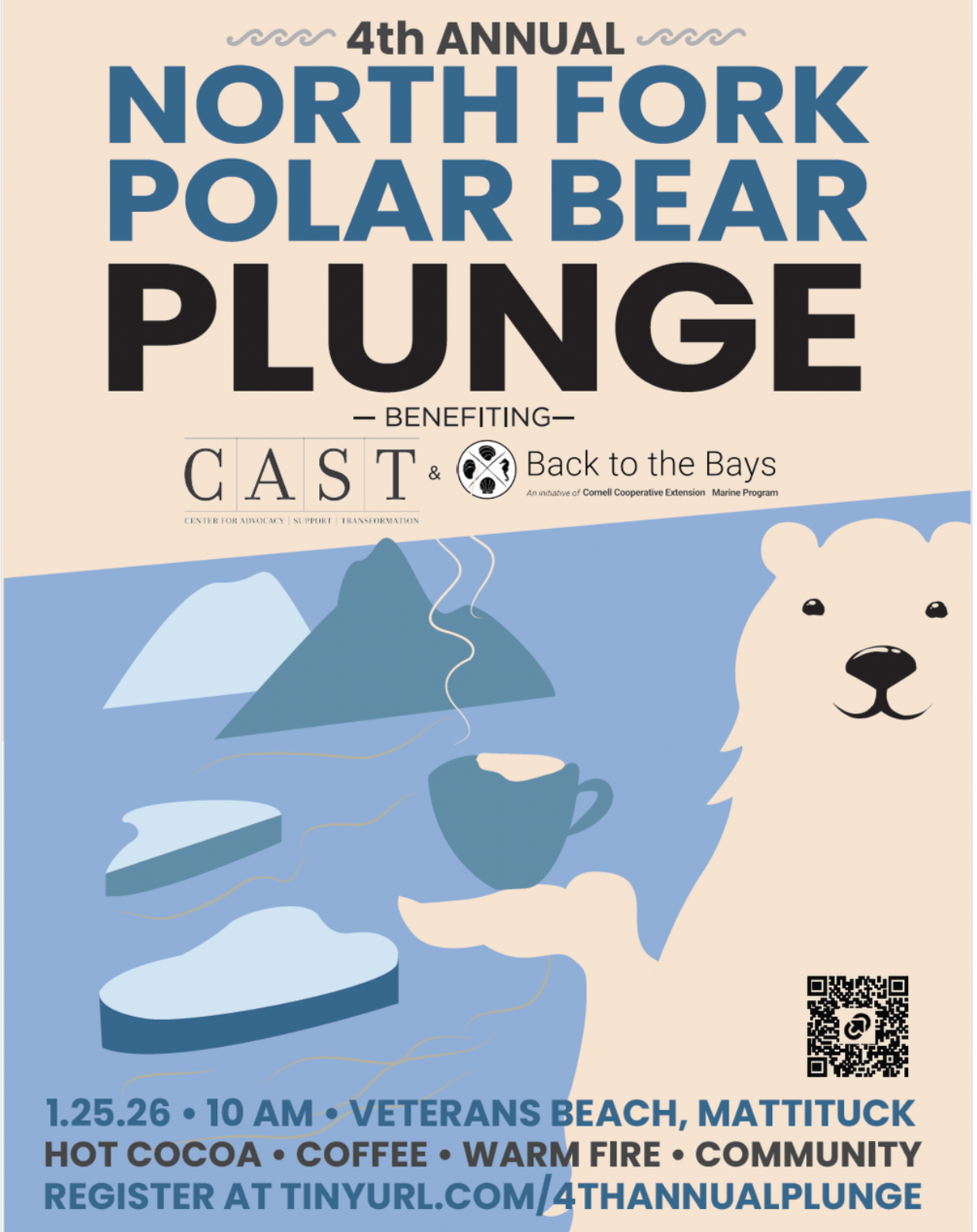

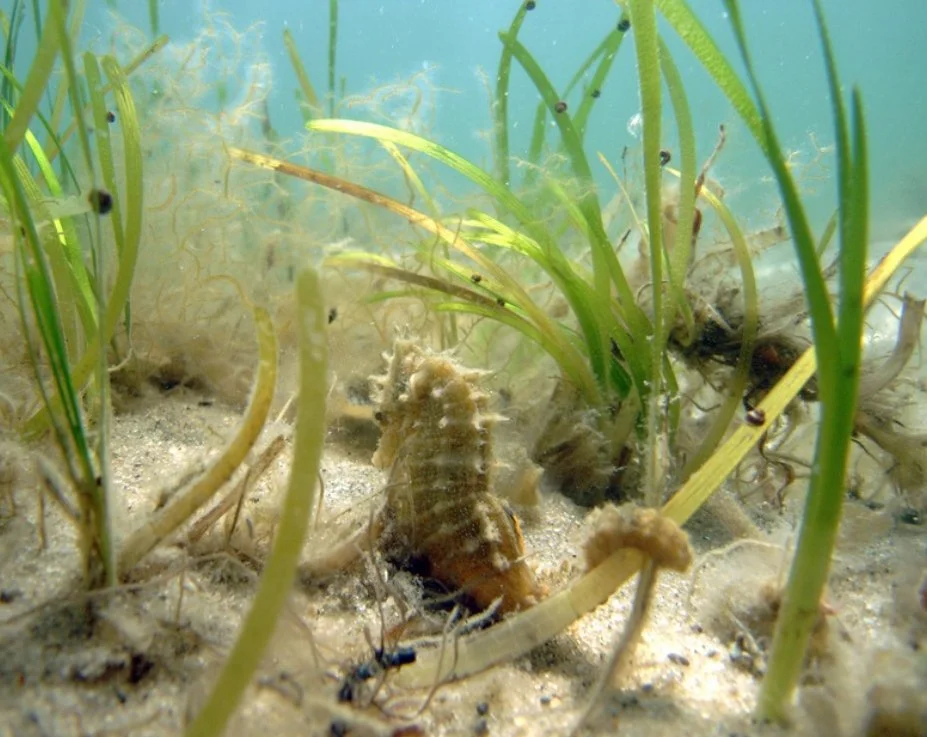

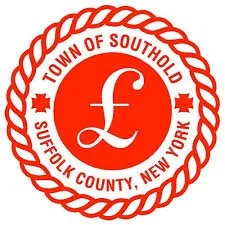
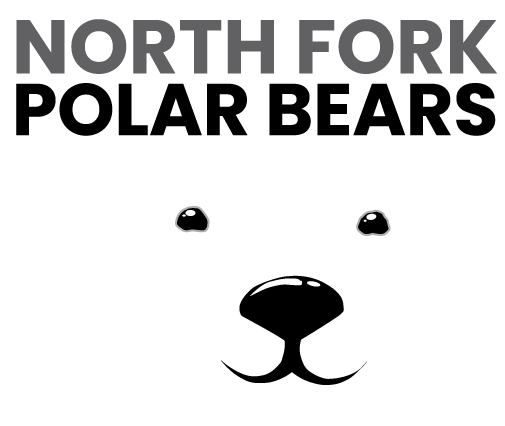
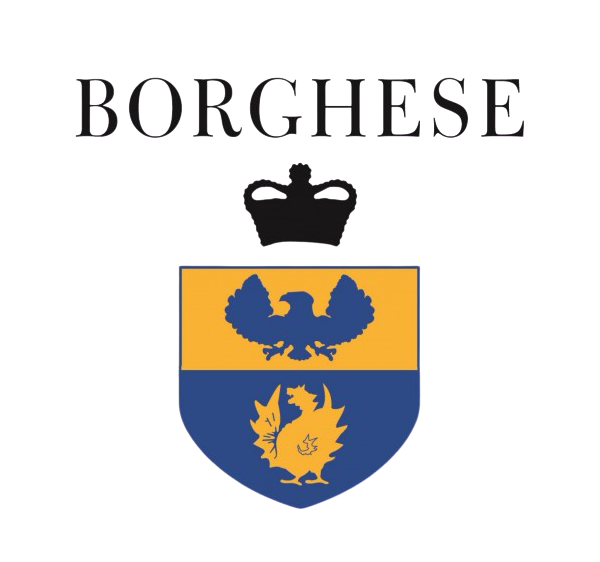
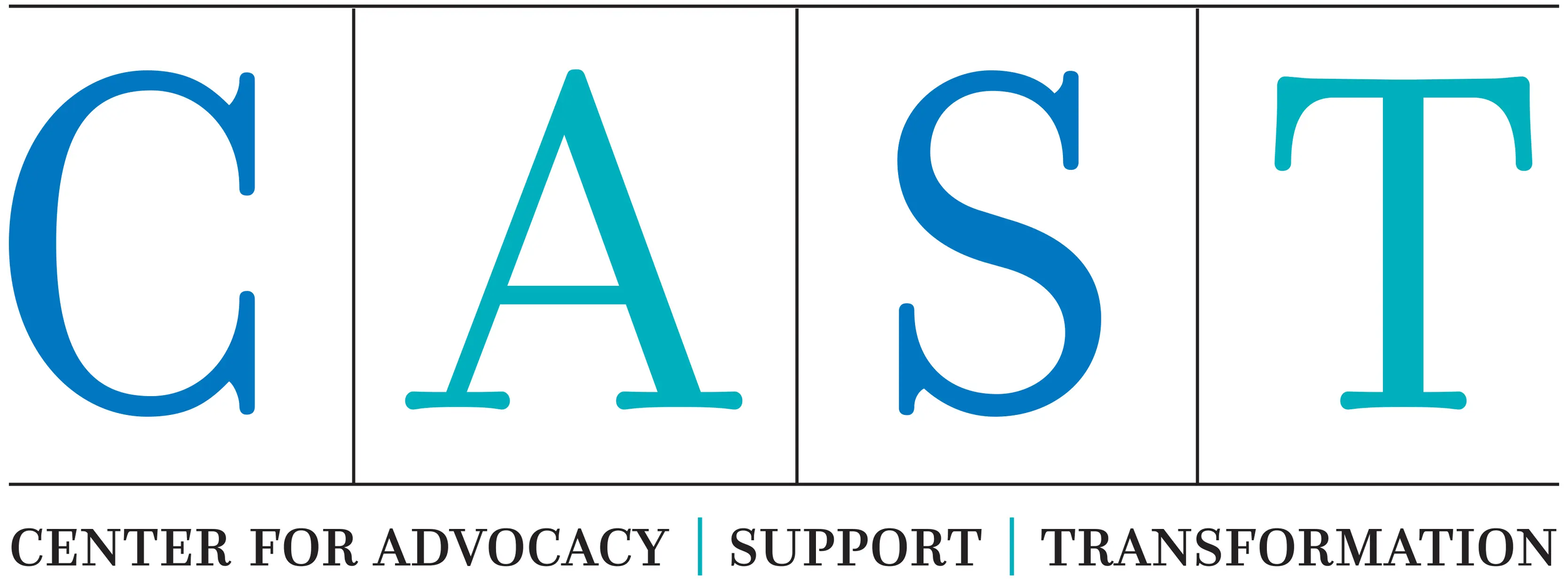
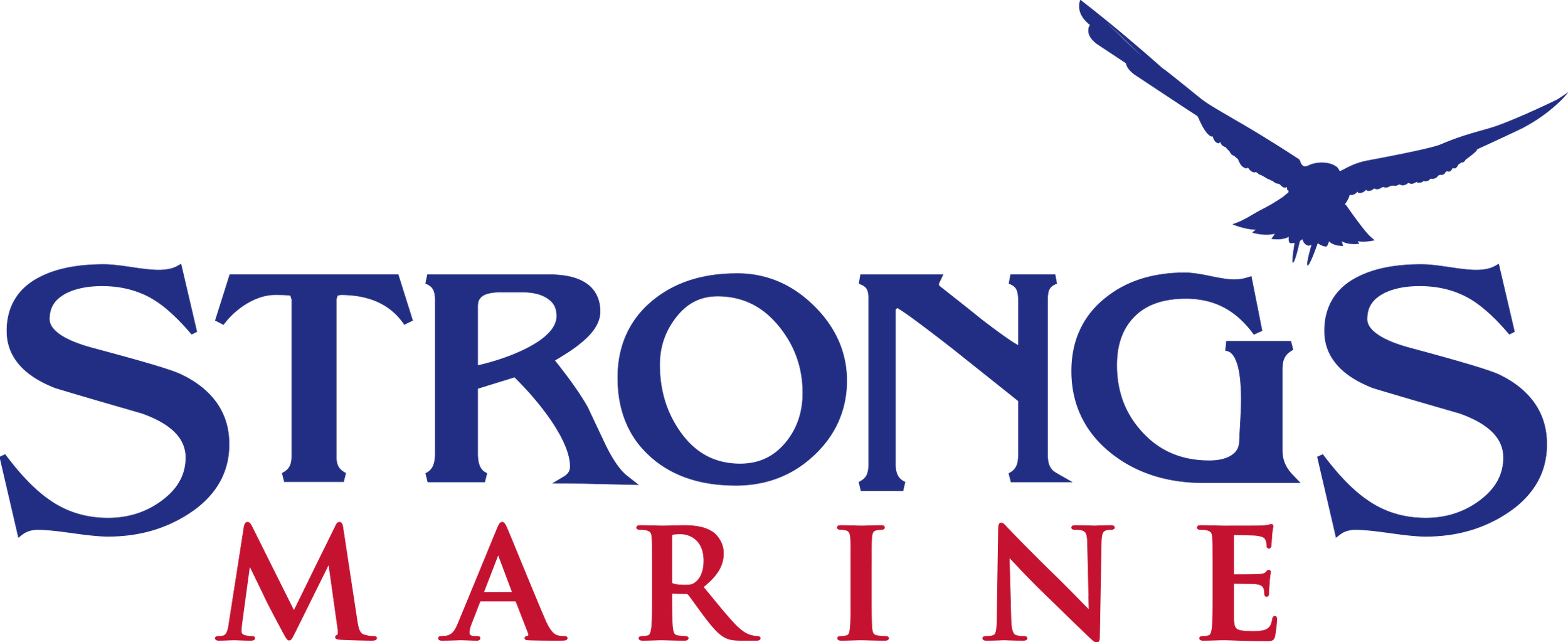
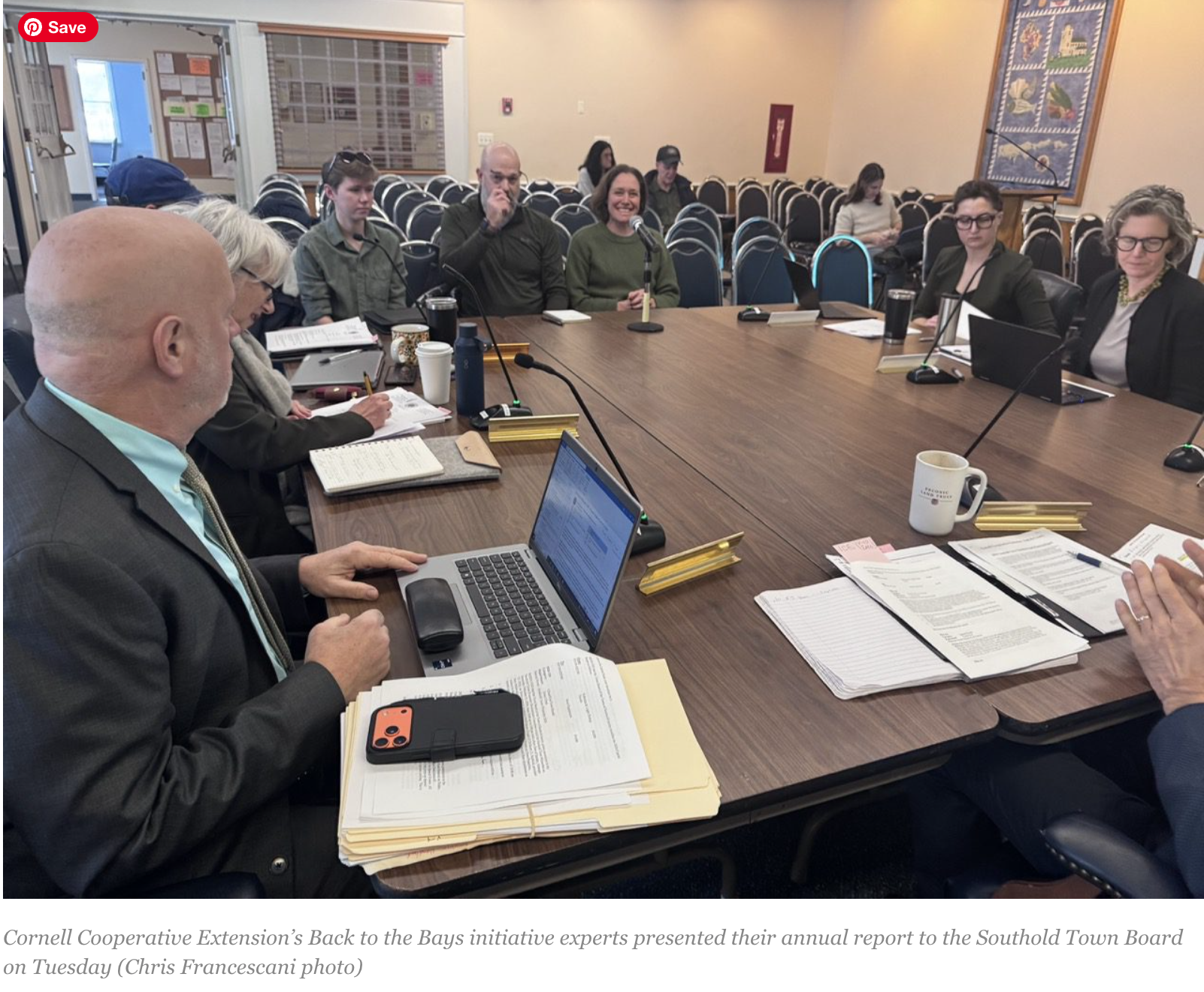
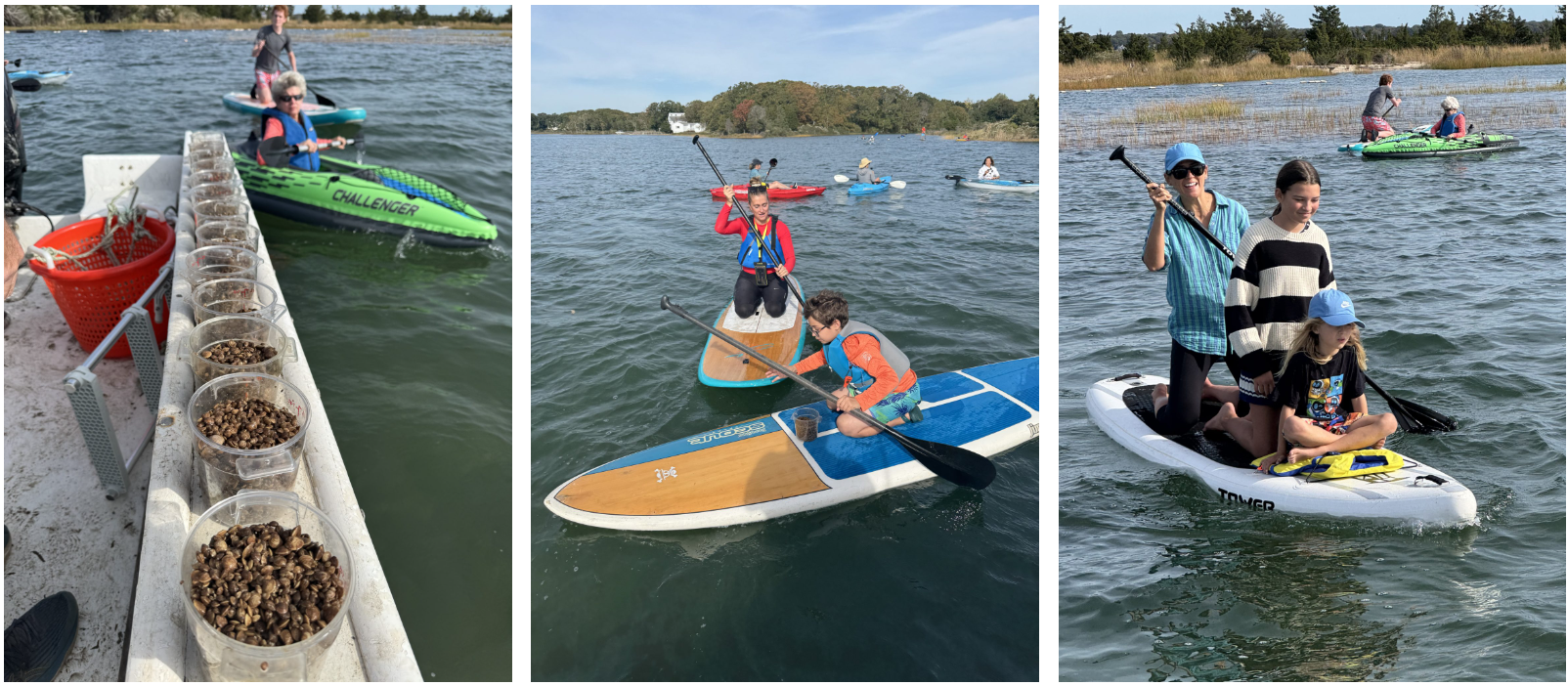


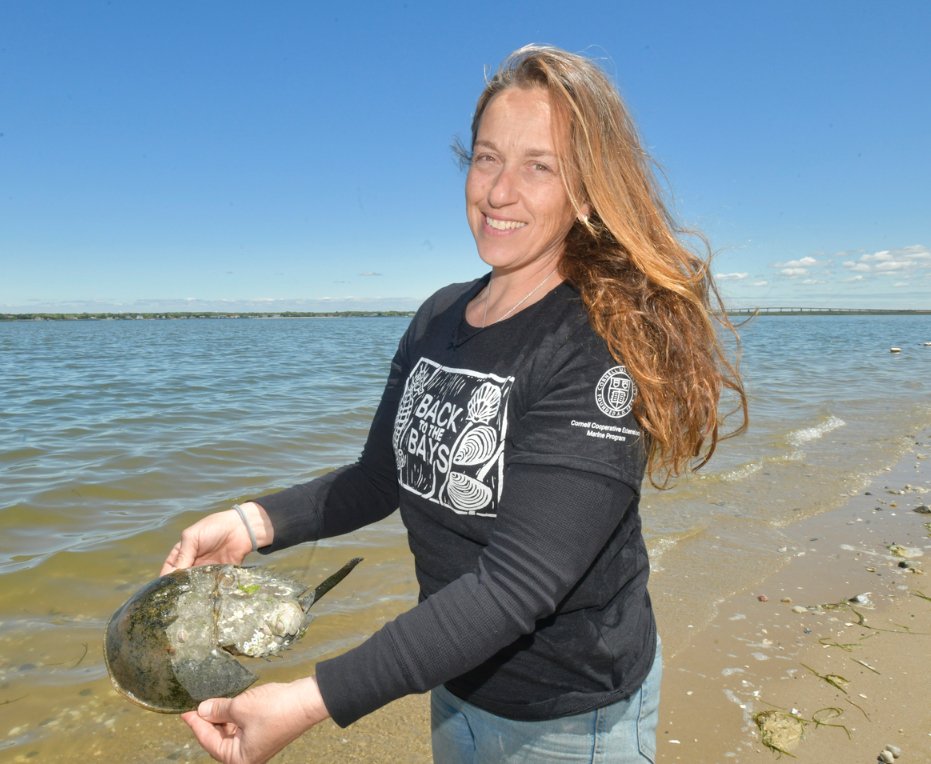
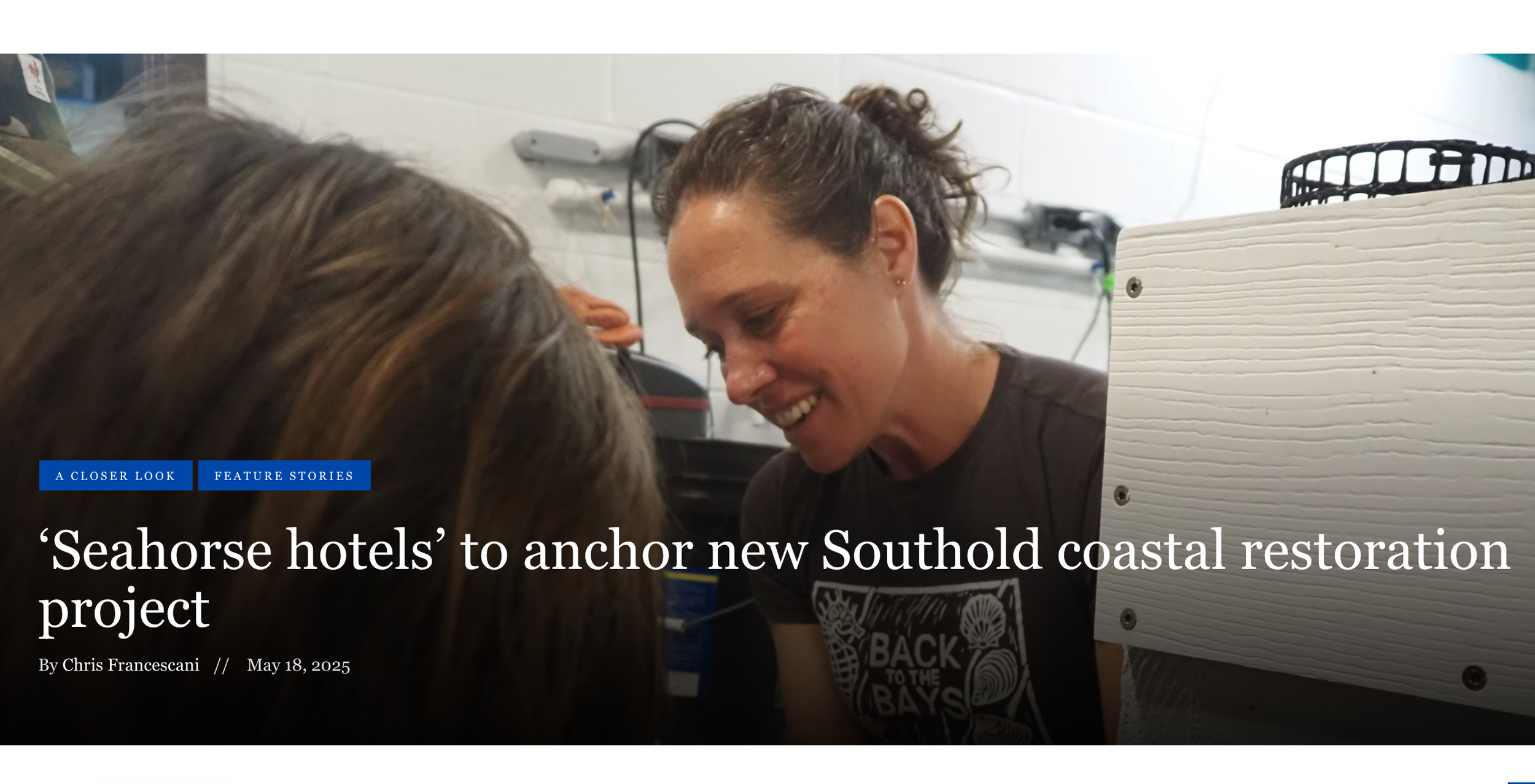
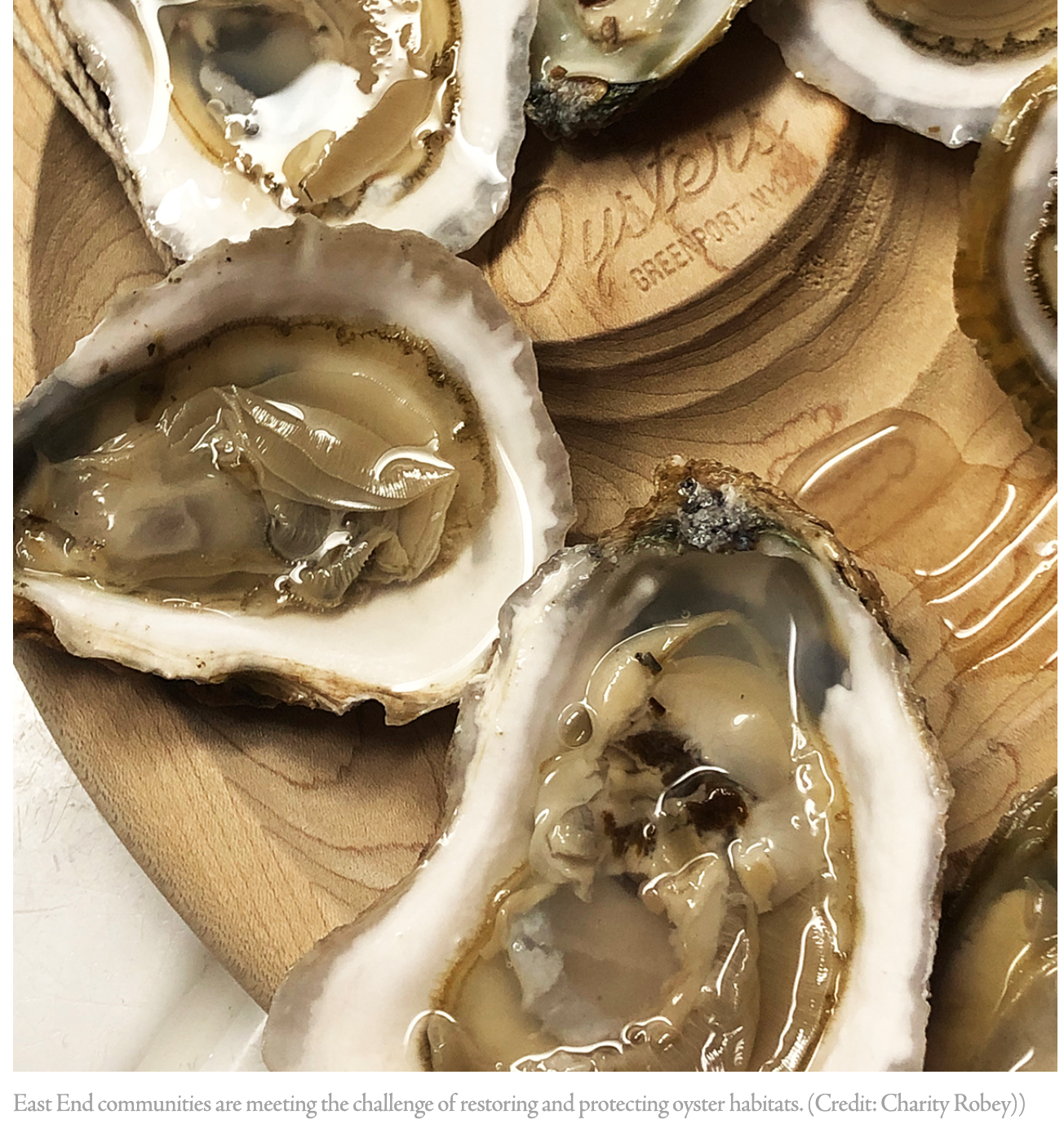
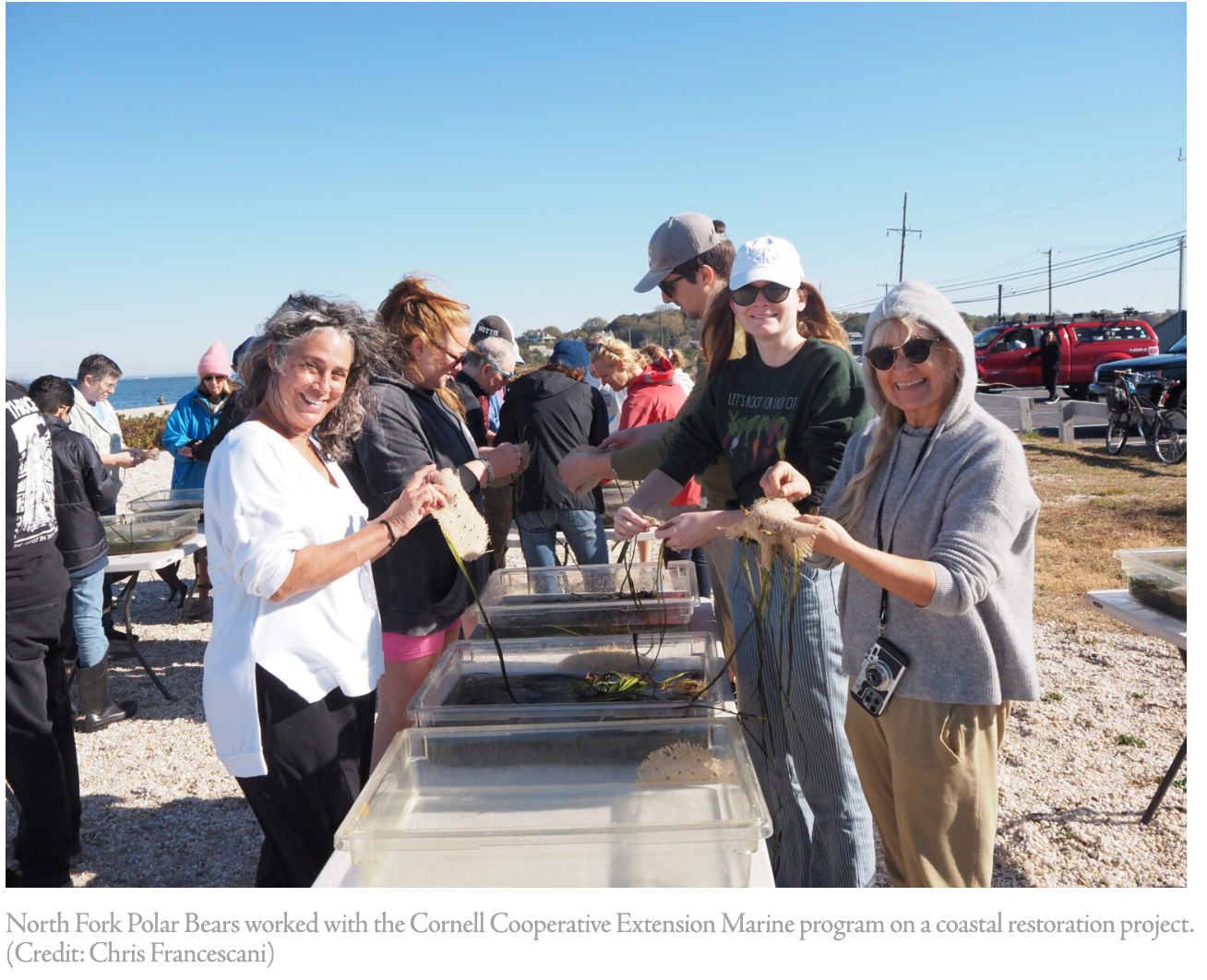
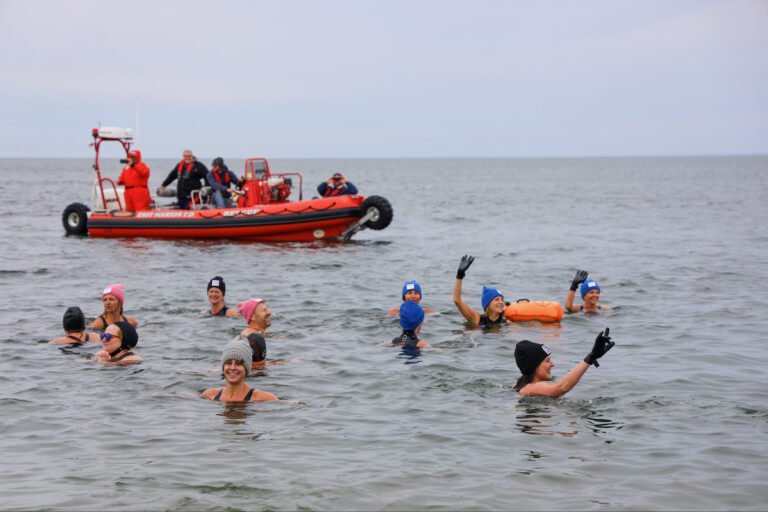
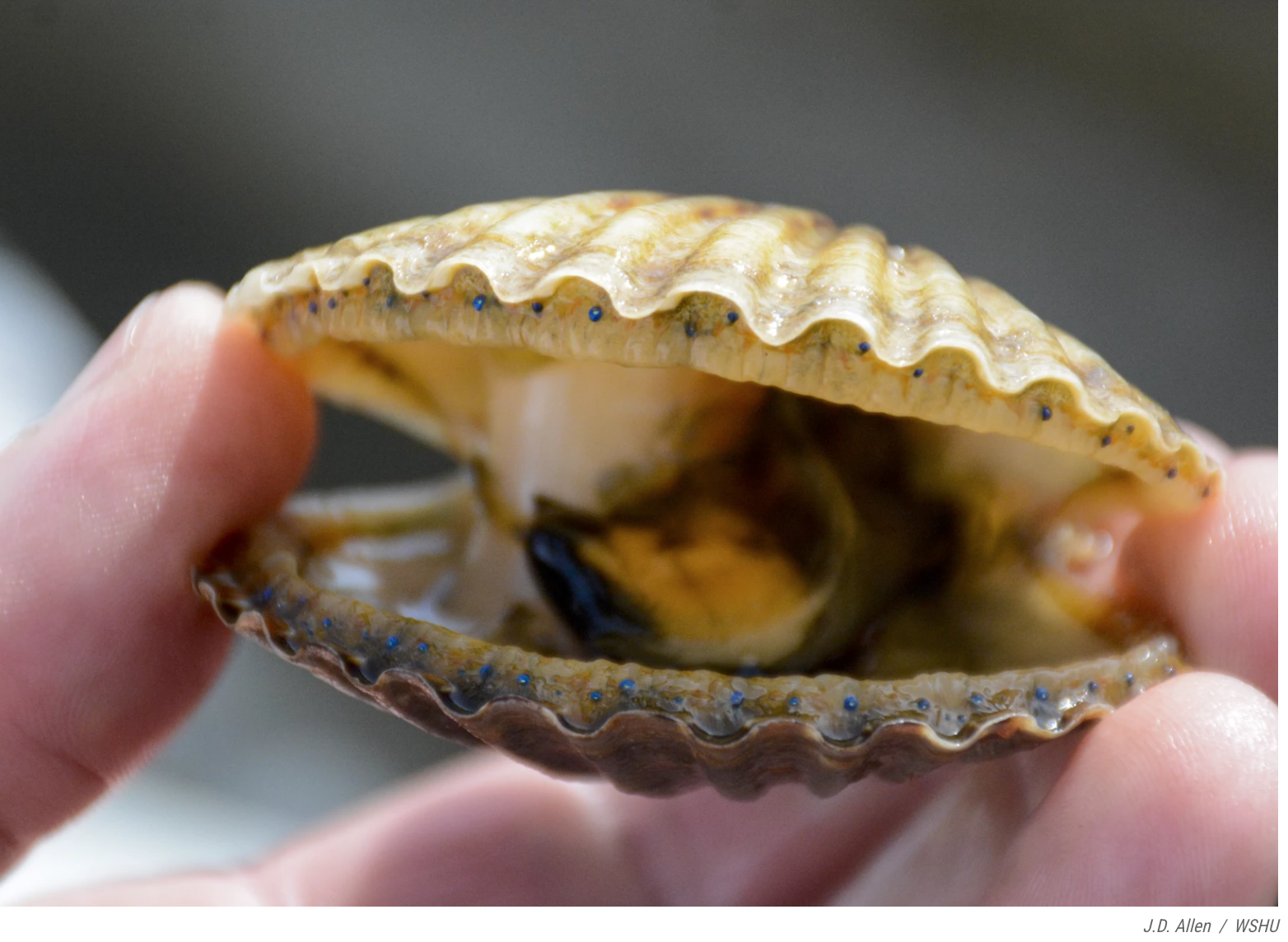
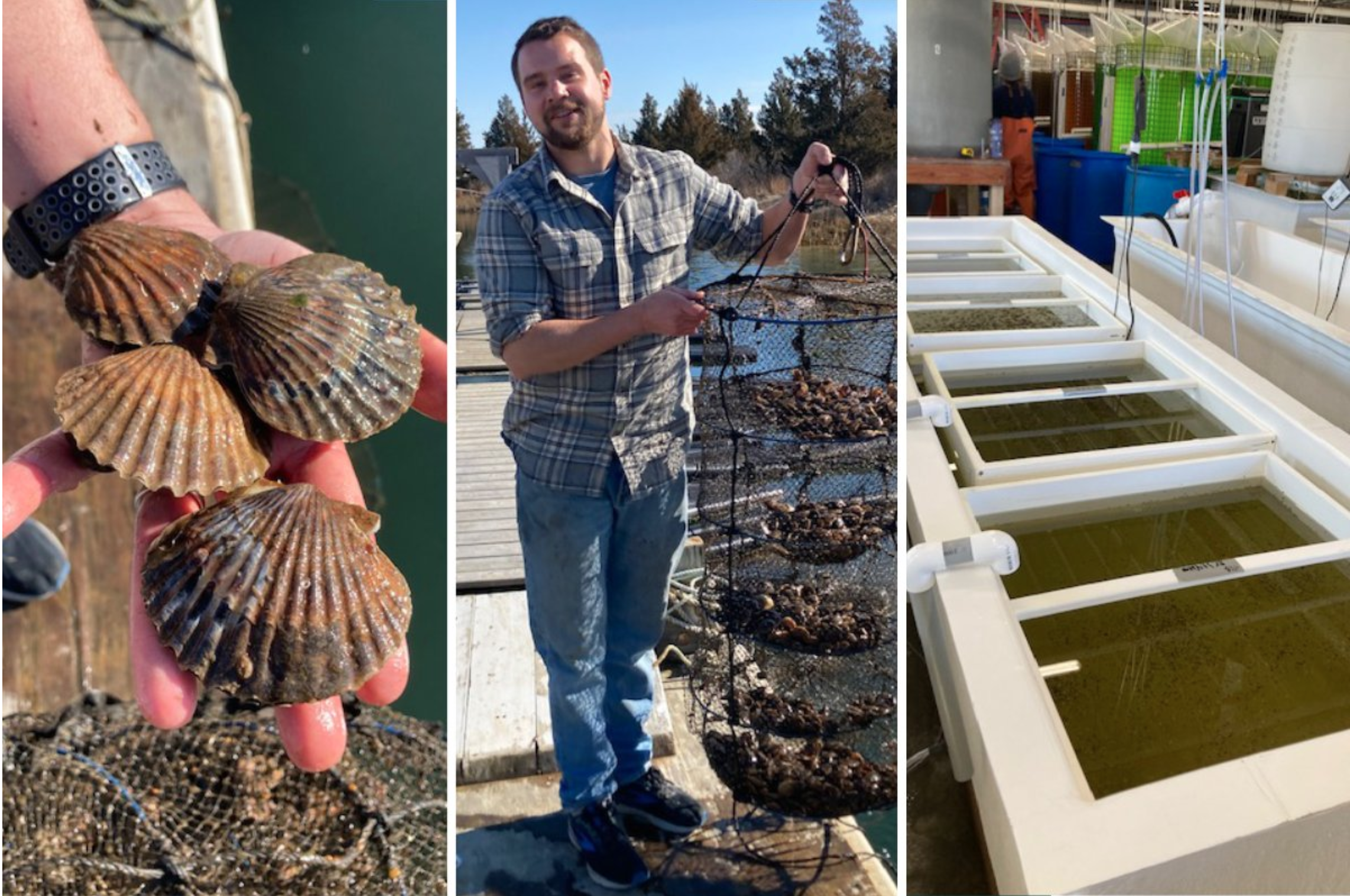
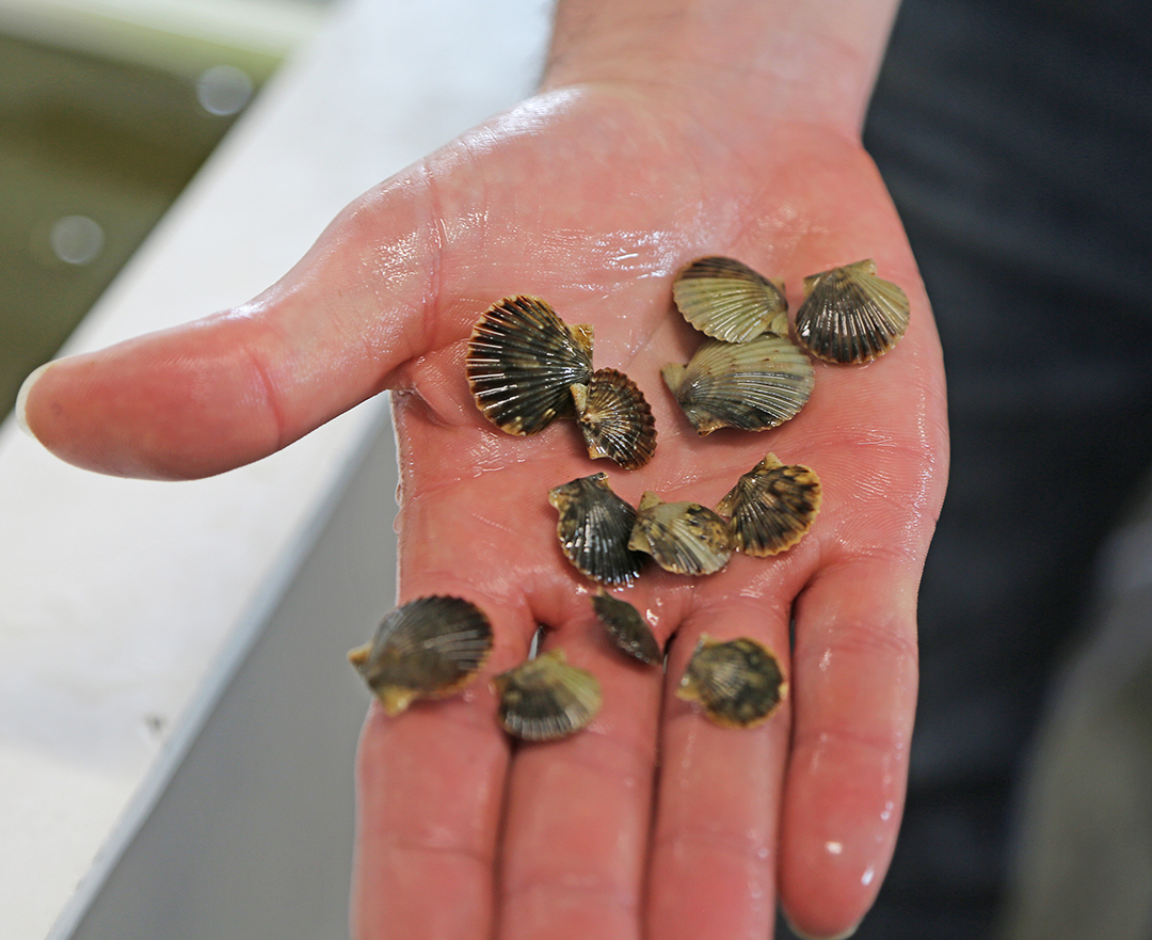
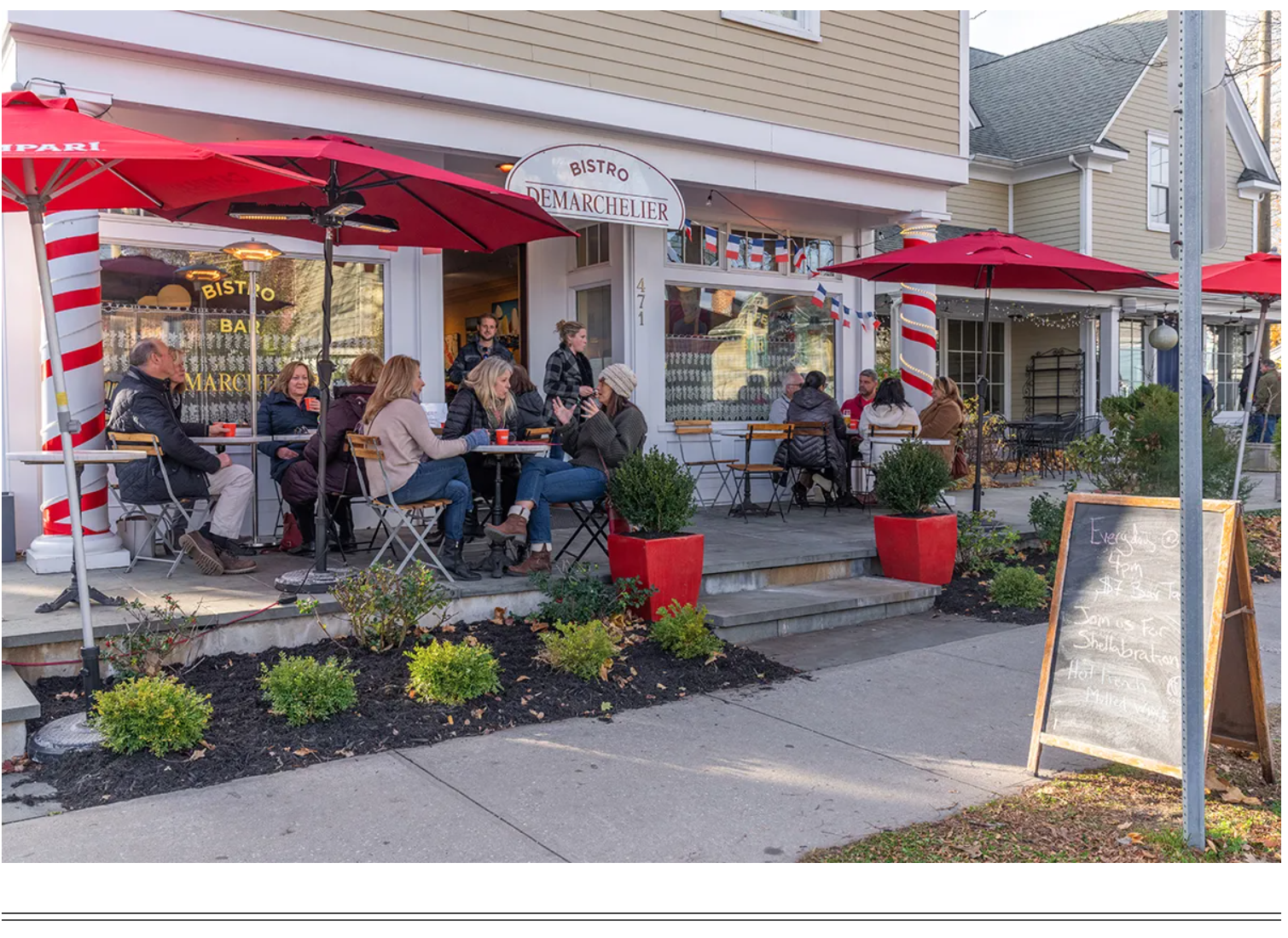
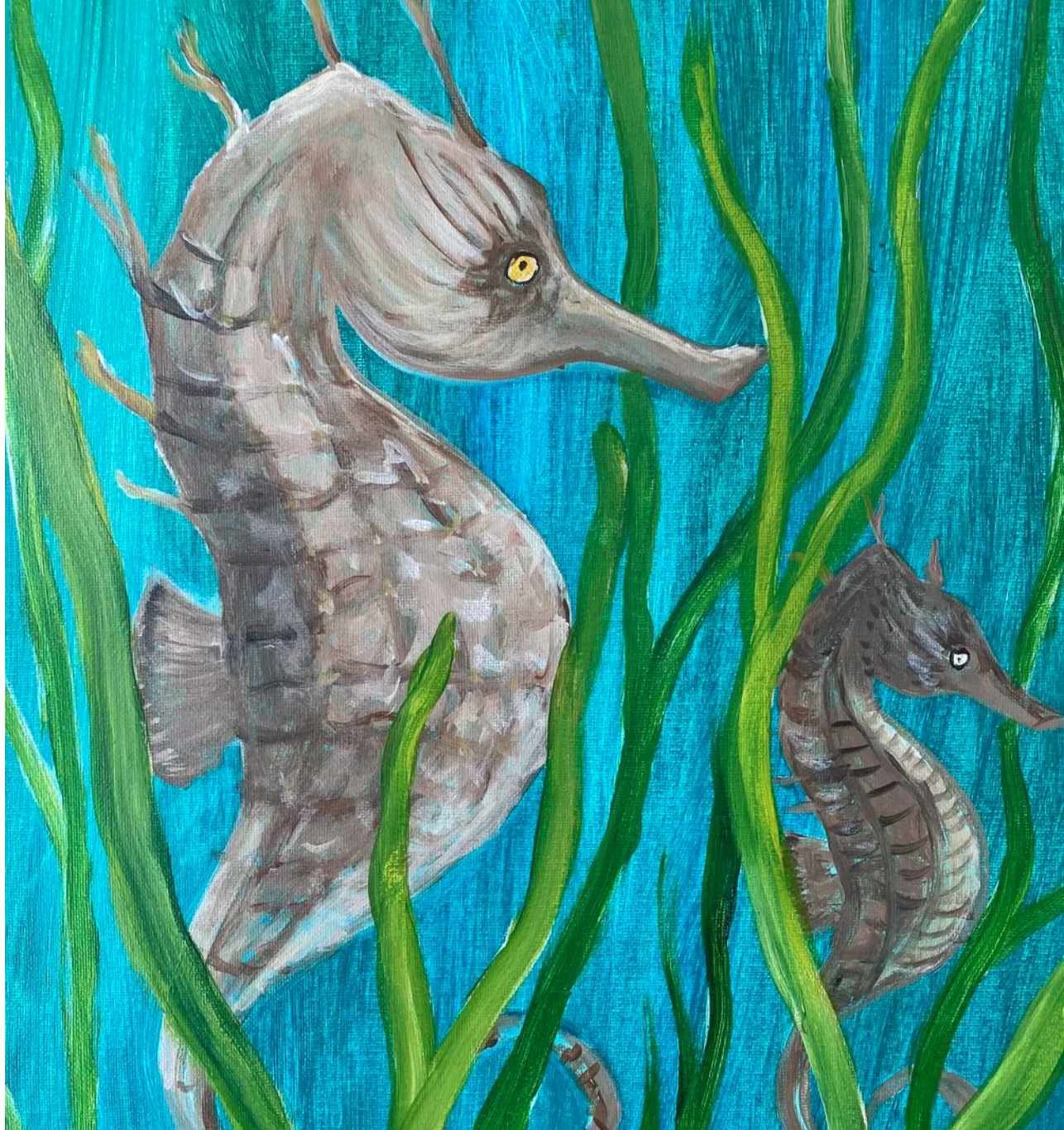






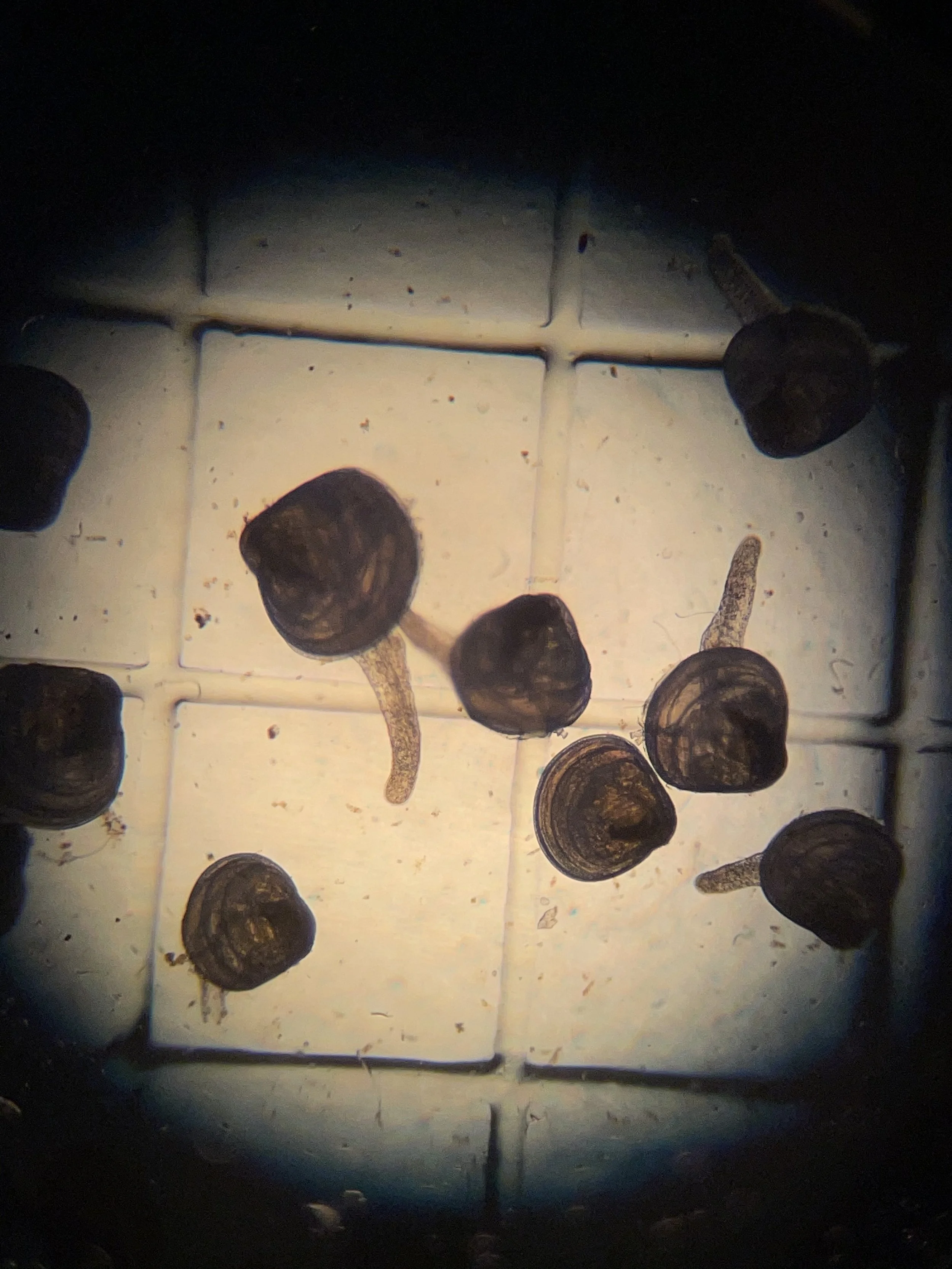
2025 marks the 10-Year Anniversary of Cornell Cooperative Extension’s Back to the Bays Initiative!